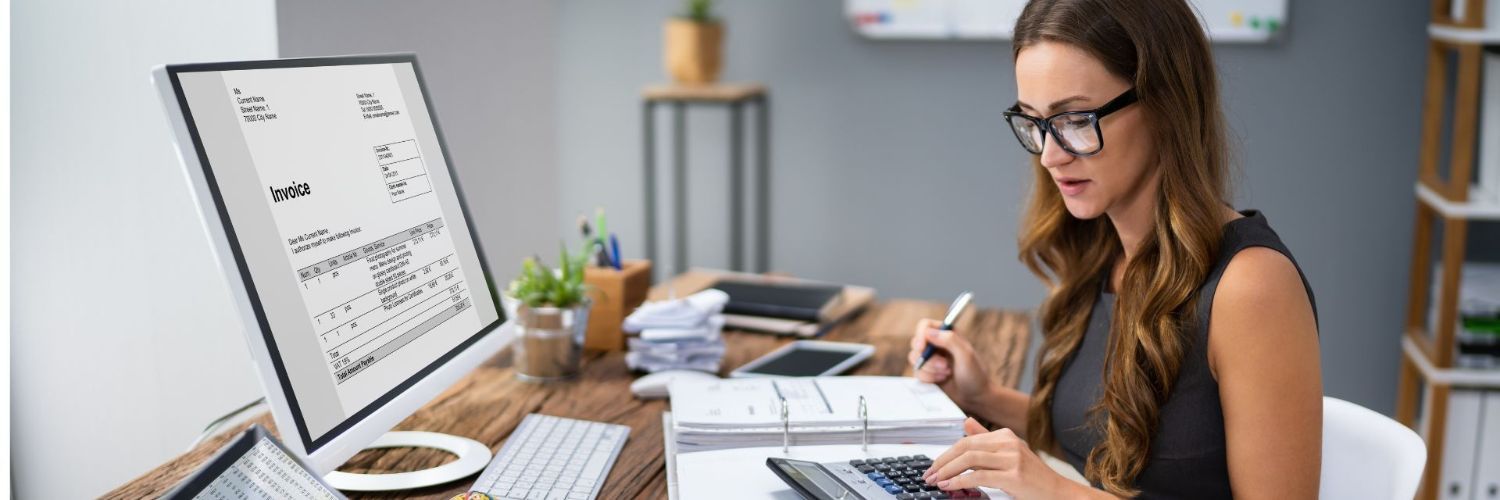Contractor Taxes Demystified
How to Handle Taxes as a Limited Company Contractor
When you’re employed and paid via PAYE, you don’t need to worry about paying your tax, as everything is done for you. This isn’t the case when you’re a contractor or if you're running a limited company, and the responsibility of paying your tax falls to you. There are a lot of benefits that come with being a self-employed contractor, but one downside is that you do need to handle tax and National Insurance on your end. Luckily, Go Limited is here with everything you need to know.
From understanding limited company tax to figuring out how to reduce your limited company tax liabilities, the tax process can feel overwhelming as a contractor. But, with the right information and understanding, you can make sure that your taxes are managed, organised, correct and paid on time.
In this essential tax guide for limited company contractors and freelancers, we’ll demystify contractor taxes, explain tax planning for limited company freelancers and contractors, and outline everything you need to know about the tax process.

What Taxes Do You Pay as a Contractor?
As a contractor, the tax you’ll have to pay varies depending on whether you’re operating as a sole trader or you’re working through a limited company. If you choose to set up a limited company and run your business that way, you’ll need to pay Corporation Tax, Income Tax, National Insurance Contributions (NICs) and Value Added Tax (VAT).
Corporation Tax
If you’ve previously worked as an employee or self-employed freelancer, paying Corporate Tax will be new to you. This is the tax that you pay on your business’ profits. As of the 2023/2024 tax year, the corporation tax rate is 25% for profits over £250,000. For profits under this threshold, the rate is 19%.
Income Tax
As a director of a limited company, you also need to pay income tax on the salary and dividends you draw from the company. Your salary is taxed like any other employee - at a rate of 20% or 40%, depending on your earnings - while dividends are taxed at a lower rate. This is why a lot of contractors use dividends as a way to boost their income in a tax-efficient way.
National Insurance Contributions (NICs)
As a contractor operating through a limited company, you must pay Class 1 NICs on your salary, but any dividends you receive are not subject to NICs. NICs on your salary can add up, which is why a lot of contractors try to strike a balance between taking a salary and dividends for maximum tax benefit.
VAT (Value Added Tax)
If your annual turnover exceeds the VAT threshold of £85,000, your business will need to register for VAT. VAT is a consumption tax that’s added at every stage of a product’s production and distribution, and it’s similar to a sales tax. Once you’re registered, you must charge VAT on your services and pay it to HMRC. But, you can also claim VAT back on your purchases related to your business.
Dividend Tax
You’ll have to pay tax on dividends and that happens at a different rate to income tax. The rate is generally rate, making dividends a tax-efficient option for contractors. The first £1,000 in dividends is tax-free, and any dividends beyond that are taxed at rates of 8.75%, 33.75% or 39.35%, depending on your overall income.
How Contractor Taxes Are Calculated
It’s important to know what the tax calculation is for a contractor limited company, as this will help you to keep on top of how much you owe, why you owe it and when it needs to be paid. There’s a lot that goes into the calculation of contractor tax and things such as how you take money from the business, your income and your expenses are all taken into account.
Corporation Tax
Corporation tax is calculated based on your business’ profits, which is calculated based by deducting allowable expenses from how much you’ve made. The figure that’s left, which is your profit, is what corporation tax is based on.
Income Tax and NICs
Once corporation tax has been calculated, income tax and NICs are then factored in. As a contractor, your salary is treated in the same way it would be as an employee, and you pay them based on a percentage of your earnings.
Dividends
If your company distributes profits in the form of dividends, they are subject to dividend tax. Since dividend tax rates are lower than income tax rates, contractors often use this approach as a way to reduce their overall tax liability. It’s one of the main limited company tax benefits, as opposed to using an umbrella company.

Tax Deductible Expenses for Limited Company Contractors
There are a lot of contractor and limited company tax benefits, one of which is that you can claim various tax-deductible expenses to reduce your taxable profit. These expenses are a key part of reducing limited company tax, saving you money in the long run.
Travel and Transport
You can claim for travel costs, as long as they are related to your business. This includes fuel, car insurance and public transport, as long as the travel is work related and you can prove how much you paid.
Home Office Expenses
If you’re a contractor or freelancer who works from home, you can claim a portion of your household expenses, such as electricity, heating and internet bills. You can do this by working out the percentage of the bill that’s related to your business, but HMRC does also offer a simplified expenses approach.
Equipment and Supplies
If you have to buy equipment and supplies for your business, you can include them as a deductible expense. This includes computers, phones, office furniture and stationery used exclusively for your business.
Professional Services
There’s a range of professional services that you can deduct as an expense, including accountancy fees, legal advice, and any other professional services directly related to your business operations.
Training and Development
You can claim for professional training for limited company contractors, as long as it’s related to your work. This could include courses or seminars to enhance your skills relevant to your contracting work, or attending industry events to network.
Meals and Entertainment
Meals and coffee that are business-related - for example, that were incurred during a client meeting - are deductible. However, you do need to be cautious with personal meals, as they won’t be allowed as tax-deductible expenses. You’ll need to prove that the meal, drink or entertainment was solely for business purposes.

As you can see, there are a whole host of benefits that come with having a personal services company, so it makes sense that it’s a route a growing number of contractors are taking. Whether you’re in IT and technology, finance and accounting, or engineering and consulting, you’re sure to find that having a personal services company has its benefits.
What Makes a Personal Services Company Different to Being a Sole Trader?
There are some key differences between being a sole trader and contracting through a personal services company, which we have explained below. A PSC is often the best limited company for contractors, but it’s important to understand that it’s not the same as being a sole trader.
Sole Trader vs. Personal Services Company
A sole trader is someone who operates a business alone. While setting up as a sole trader is quick and simple, it doesn’t have as many benefits as a PSC. For example, as a sole trader, your personal assets are at risk if your business faces financial trouble. This isn’t the case with a PSC, which provides limited liability, meaning that your personal assets are generally protected.
Another difference is that a sole trader’s income is taxed through personal income tax, whereas a PSC can pay dividends, which can result in you having a smaller tax bill.
Sole Trader vs Limited Company Tax
As a contractor, you’ll have to decide whether you operate as a sole trader or a limited company, and the tax implications could be what sways you one way or another.
Sole Trader
As a sole trader, your business income is taxed as personal income, meaning that you’ll pay income tax and National Insurance Contributions on all your earnings. You can’t split your income between salary and dividends, which can mean that being a sole trader is less tax-efficient for higher earners.
Limited Company
As a contractor with a limited company, your business is a separate legal entity to you. You pay corporation tax on your profits, and then you pay income tax and National Insurance on your salary. Dividends are taxed at a lower rate than the income tax you’d pay as a sole trader, meaning that the limited company tax structure tends to be more tax-efficient for contractors.
How to Plan for Taxes as a Contractor
A big part of managing contractor taxes is planning; this means planning for ways to minimise your tax liability, but also planning to make sure you’re compliant with all tax regulations.
Use Dividends Efficiently
One way to minimise your tax liability is to take a low salary and maximise dividends, as this will reduce your income tax and NICs.
Keep Track of Expenses - It’s important to stay organised and keep detailed records of all tax-deductible expenses for limited company contractors. If HMRC investigates you, you’ll need to show that the expense was solely for business use.
Pension Contributions
You can reduce your tax liability with pension contributions. Contribute to a pension scheme to reduce your taxable income, whilst helping you to save for retirement.
Hire an Accountant
A limited company contractor accountant can help you to navigate limited company tax. They’ll make sure that you're making the most of available deductions and allowances.
Set Aside Funds for Tax Payments
You don’t want to be blindsided by a tax bill that you can’t pay. Set aside a percentage of your earnings throughout the year so you’re prepared for tax payments when they are due. If you’re late payment, you’re likely to incur interest and penalties.

FAQs
What taxes do I need to pay as a contractor?
As a contractor, you may need to pay Corporation Tax, Income Tax, National Insurance Contributions (NICs), and potentially VAT if your turnover exceeds the threshold.
How is contractor tax different from PAYE?
Unlike PAYE employees, contractors are responsible for calculating, reporting, and paying their taxes directly to HMRC.
What’s the difference between a sole trader and a limited company for tax purposes?
Sole traders pay Income Tax and NICs on all their earnings, while limited companies pay Corporation Tax on profits, and directors can distribute income through a combination of salary and dividends.
What is Corporation Tax, and how is it calculated?
Corporation Tax is a tax on company profits. It’s calculated by deducting allowable expenses from total revenue and applying the current tax rate (e.g., 25% for profits over £250,000).
When is Corporation Tax due for a limited company?
Corporation Tax is usually due nine months and one day after the end of your company’s accounting period.
What is dividend tax, and how does it work?
Dividend tax is applied to any profits distributed as dividends to shareholders. The tax rates depend on your total income and range from 8.75% to 39.35% after the tax-free allowance.
Are dividends more tax-efficient than salary?
Yes, dividends are often taxed at a lower rate than income tax, and they are not subject to NICs, making them a tax-efficient way to draw income.
Do I need to register for VAT as a contractor?
If your annual turnover exceeds £85,000, you must register for VAT. Below this threshold, VAT registration is optional.
What is the Flat Rate VAT Scheme, and should I join it?
The Flat Rate VAT Scheme simplifies VAT reporting and may allow you to keep a percentage of the VAT you charge. Eligibility depends on your business type and turnover.
What expenses can contractors claim to reduce tax?
Contractors can claim expenses like travel, home office costs, equipment, training, and professional services directly related to their business.
How do I prove expenses to HMRC?
Keep detailed records, receipts, and invoices for all business-related expenses. You may need to show these during an HMRC investigation.
What National Insurance Contributions do I need to pay?
Contractors pay Class 1 NICs on salary but do not pay NICs on dividend income.
How can I reduce my NIC liability?
Taking a low salary and higher dividends can help reduce NICs, as dividends are not subject to NICs.
How can I plan for contractor taxes effectively?
Use strategies like maximising dividends, contributing to pensions, and keeping organised records.
Hiring an accountant
can also ensure compliance and tax efficiency.
What happens if I miss a tax deadline?
Late payments may result in penalties and interest charges. Set aside funds throughout the year and use reminders to avoid missing deadlines.
Do I need an
accountant
as a contractor?
While not mandatory, an accountant can simplify tax calculations, ensure compliance, and help you maximize deductions and allowances.
How do I switch from sole trader to limited company?
To switch, you need to register your limited company with Companies House, set up a business bank account, and adjust your tax registration with HMRC.
What is IR35, and how does it affect my taxes?
IR35 determines whether you are genuinely self-employed or an employee for tax purposes. Being caught by IR35 can affect your ability to take advantage of certain tax efficiencies.
Important:
- Please note: Any rates and thresholds mentioned in this article are correct at the time of publishing and may be subject to change.
- When choosing an accountant, look for one with proven experience and expertise in the contracting sector, particularly around areas like IR35, limited company tax matters and off-payroll working. Formal qualifications are important, but relevant hands-on knowledge matters just as much — especially in a complex and fast-changing landscape like this.

Understanding contractor taxes is key to running a successful limited company, and Go Limited is here to help. Whether you’re just starting out or you’re looking for ways to improve your tax planning for limited company freelancers and contractors, knowing the ins and outs of contractor taxes is key.











